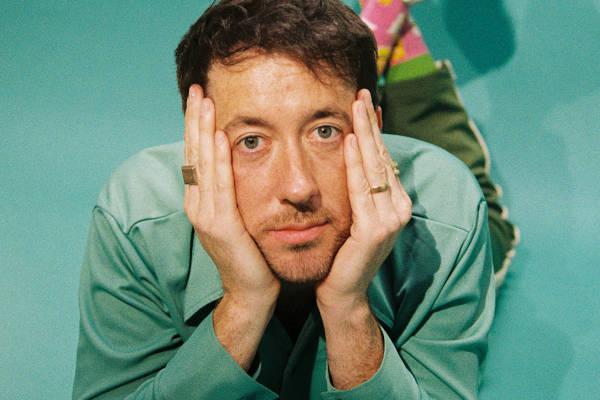It's inherently apparent that Matthew 'Murph' Murphy doesn't quite know the meaning of the word 'pause', as he's speaking from his car on the bustling streets of Los Angeles when this interview call is connected.
Ironic, really, for one of the world's most successful musicians. Whether you know him from his work with The Wombats or his solo project, Love Fame Tragedy, it's pretty clear Murph doesn't know how to stop.However, at least he can admit it. "I probably should at some point, but yeah, I dunno, I don't really want to stop just yet," he says. "Dan and Tord from The Wombats got to LA two nights ago, so we are working on album six."
"I did LA to Heathrow like 22 times in about 50 days." - Murph
While that band is creating their next release, Murph's second album under his solo moniker, Love Fame Tragedy, will be released later this month.
The record's title, 'Life Is A Killer', suggests a journey filled with challenges and hardships. Murph doesn't shy away from the implications. "Yeah, I would agree."
He goes on to elaborate further the intense experiences that influenced the album, recounting a period of constant travel between the UK and the US that led to a challenging descent into unhealthy habits.
"I would say the last five years have been pretty crazy and I really did a number on myself," he says. "I did LA to Heathrow like 22 times in about 50 days just because I had to get back to be a dad, and then there was a festival the next weekend I had to play, and that really sped up a bit of a descent into doing too many things that weren't good for me."
About a year and a half ago, Murph says, he had to face the consequences of his actions "and really choose a life of sobriety". The album was written through the peaks and troughs of that period of time, and is lyrically more raw than some of his previous work.
Murph confesses this was the influence of producer Jacknife Lee, who was originally meant to produce the entire album.
"He was like, 'I feel like if I was going to critique your work, it would be that I think you hide behind metaphor too much, and why don't you just not worry about that for now? What are you scared of?'" Murph says, "and I kind of thought he had a point, so I ran with it."
Murph also cites the digital age and people's short attention spans as a positive, as it has opened up the floodgates for artists to get to the crux of the matter in a more timely fashion.
"That's one of the positives of the age that I think we're living in, and maybe that has somehow influenced me to be in my head like, 'oh, it's okay, you can just go straight to the subject from the word go'. . . or maybe it's just internally, maybe I just feel like I can be more creative now.
"I certainly don't care as much about what people think of me or my life or my songs, I suppose. I mean, I hope they like them, but I'm not really worried about any other people's opinions and maybe that's helped as well as this iGen simulation we're living in."
One distinctive element of the new album is the inclusion of voice notes from Murph's family, particularly his wife, Akemi. When asked about this choice, Murph explains he and Lee aimed to create an album that flows seamlessly as a piece of art.
The voice notes, exchanged during Murph's hour-long commute to the studio, added a unique dimension to the music. Murph recounts how Lee overheard a voice note and insisted on including it at the start of the album, giving it an additional layer that Murph hadn't explored before.
"[Lee] overheard something, he was like, 'oh, send me that', and he shoved it at the start of 'Don't You Want To Sleep With Someone Normal', which opens the album," he says, "and then there was the voice note where she's like, 'oh, you're going to f...ing use these voice notes in your album, aren't you, to make yourself the victim of whatever life you choose'; and then I thought that was really meta.
"So yeah, I don't know, it just added another dimension that I wasn't aware existed, to be honest."
Although Lee heavily influenced the production of the album, there were some creative differences which led to a falling out (which they've since recovered from) and there were some tracks worked on by other producers – like Sam Hales from The Jungle Giants, who produced 'Eat, F..., Sleep Forever'.
"I'd kind of given up on the song and I was ready to sacrifice it," Murph admits. "That was going to be the bad song on the album and I was like, 'just mix it', which is bad, I don't usually do that.
"But Mark Crew, who did the other half of the album, was like, 'this has a lot of potential why don't you get someone else to look at it?'"
Murph admits to having been "obsessed" with a couple of The Jungle Giants' songs for the past four or five years, so he reached out to Hales.
"[Sam] just did his thing and we Zoomed a couple of times and talked about it and really just gave him as many files as we could and gave him free rein and he did a great job," Murph says.
"Now it's gone from being a song that I was willing to sacrifice for the greater good to really being the cherry on the cake of an album that I'm very proud of."
'Life Is A Killer' will be released 29 March. Pre-order it.

